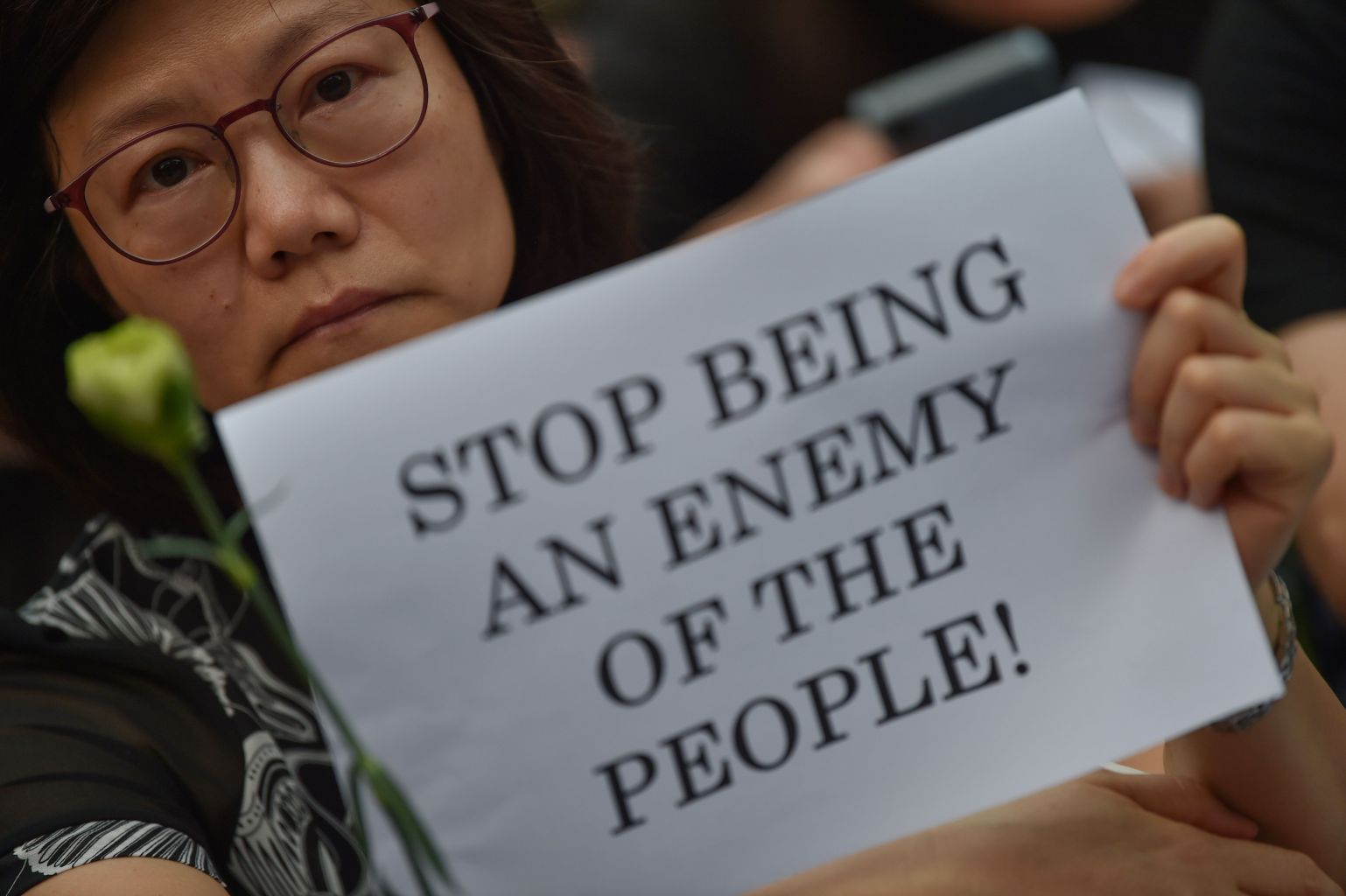HK extradition Bill: Debate delayed again; chief executive under pressure to give in as another massive protest planned
Sign up now: Get insights on Asia's fast-moving developments

Protesters attend the Hong Kong Mothers Anti-Extradition Rally, in protest against actions of the city's police force, in Hong Kong on June 14, 2019.
PHOTO: AFP
HONG KONG - Debate on the highly unpopular extradition Bill has been delayed yet again as opponents aim for another massive rally on Sunday (June 16), similar to the one a week ago that brought hundreds of thousands onto the streets to protest against the controversial legislation.
Support for Hong Kong leader Carrie Lam's stance on the issue also seems to be wavering, with a number of her allies urging her to shelve the Bill.
A check on the Legislative Council (LegCo) website in the early evening on Friday (June 14) showed no meeting has been scheduled for Monday (June 17) and Tuesday (June 18). For next week, only seven meetings have been scheduled, and none is related to the Bill.
On Friday, the Civil Human Rights Front, a coalition of pro-democracy groups and lawmakers, said it hopes it can again muster one million people to march on Sunday, a number to match the turnout a week ago, although police put the figure at only 240,000.
Instead of just starting out from Victoria Park, the group also wants the police to allow protesters to march on Sunday from Edinburgh Place in Central and Sun Yat Sen Memorial Park in Sai Ying Pun. The rally will end at the government's headquarters in Admiralty.
The group said doing so would make it quicker for protesters to get to their destination.
But the police rejected the request to start from Sun Yat Sen Memorial Park, saying the venue is unavailable. But the rally will start at Victoria Park while the Civil Human Rights Front is getting confirmation for Central, said the group.
Vice-convenor of the group Bonnie Leung said there was no reason for the authorities to reject the application: "What we are planning to do is a very peaceful assembly... As the world has seen, we have been totally peaceful so the police have no excuse, no reason at all, not to give us permission."
The Civil Human Rights Front is also calling for a city-wide strike on Monday to protest against the Bill which, if passed, would allow Hong Kong to send fugitives to mainland China, where critics said they would not receive fair trials.
Strike calls are rare in Hong Kong. A similar movement took place in 1967 when pro-China unions acted against the colonial government.
On Friday evening, hundreds of women dressed in black gathered in Charter Garden, an urban park in the heart of the city's financial centre. Surrounded by glittering skyscrapers, they sat before a makeshift stage holding stalks of yellow flowers. They gathered to voice their disagreement with Mrs Lam, who had called the protesters spoilt children.
Mrs Lam is coming under mounting pressure, even from allies, to ease the situation.
On Friday morning, Executive Council convenor Bernard Chan said in an RTHK programme that it was now impossible for the LegCo to continue discussions over the extradition Bill given the "massive conflict" between police and protesters on Wednesday (June 12).
Later in the day, executive councillor Ronny Tong weighed in, saying the government should consider its options and that he was not against shelving the Bill.
Pro-government lawmaker Michael Tien questioned the need to rush through the Bill now that Taiwan has made it clear that it would not request the extradition of a Hong Kong suspect for a murder that happened last year, if the current proposed changes are passed.
The proposed changes to the extradition Bill were mooted in February after a Hong Kong man, Chan Tong-kai, confessed after returning to the territory to killing his girlfriend in Taiwan last year. Hong Kong does not have an extradition agreement with Taiwan.
The Hong Kong government said safeguards have been added since the Bill was tweaked after consultation, following pushback from critics.
One of the six additional safeguards is raising the threshold for offences to be covered by extradition to imprisonment for seven years or more, from the initial three years. Among other things, if the surrender involves a Hong Kong permanent resident and the resident makes an application, the government will assist the sentenced person in serving his sentence in Hong Kong.
Mrs Lam has said that the extradition arrangement is in line with international norms.
A total of 22 signatories, including former security chief Peter Lai, former Legco president Andrew Wong and former chief secretary Anson Chan, have appealed to the government to "yield to public opinion" and withdraw the proposed Bill for more thorough deliberations.
But in a sign of the wider divide in society, dozens of pro-government supporters held a protest outside the United States Consulate on Friday, accusing the Americans of inciting mass demonstrations in Hong Kong. They demanded that the US stay out of the city's domestic affairs and not use it as a battleground in the trade war with China.


